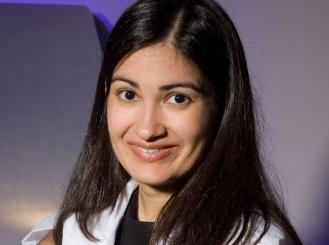Apr 13, 2015
A study in the Journal of Clinical Oncology (JCO) found that the percentage of women with breast cancer who express a strong desire for genetic testing is greater than the percentage of women who actually discuss genetic risk with any health care professional —and that this gap is significantly greater among Hispanic and black women. The study, “Concerns About Cancer Risk and Experiences with Genetic Testing in a Diverse Population of Patients with Breast Cancer,” was published online, ahead of print, April 6, 2015. This JCO study boasts one of the largest sample sizes among the studies that have examined patients’ perspectives on genetic testing, and is one of the first among these studies to use a population-based sample of patients with cancer (previous studies often focused on people who were at high risk for breast cancer, but who did not have cancer, and were often based on convenience samples).
Data for the study came from a survey completed by 1,536 women in Detroit and Los Angeles, age 20 to 79, who were diagnosed with non-metastatic breast cancer between 2005 and 2007, and who were part of a larger, longitudinal study (participants were identified the National Cancer Institute’s Surveillance, Epidemiology, and End Results [SEER] registry). The surveys, which patients filled out at the time of diagnosis and four years later, asked several questions: Had patients considered genetic testing, had they discussed genetic testing with providers, had they received genetic testing—and why did they decide for or against it—and did they worry about breast cancer during survivorship?
The study found that among the 35% of patients who expressed a strong desire for genetic testing, 196 (43.4%) did not have a relevant discussion with a health care professional (defined as “unmet need for discussion”). The degree of unmet need was significantly greater among minorities: Compared to white patients, black patients had 1.68 greater odds of having an unmet need for a conversation about genetic testing, and the disparity was even larger between whites and Latinas: English-speaking Latinas had 2.44 greater odds of having an unmet need compared to whites, and Spanish-speaking Latinas had 7.39 greater odds. The study also found that among survivors, the women who worried the most about breast cancer were those who had wanted to undergo genetic testing but had never discussed the issue with their care provider.
Five to 10 percent of breast cancers in the United States are linked to an inherited gene mutation. Patients who carry genes such as BRCA1 and BRCA2 have a significantly greater risk of being diagnosed with breast cancer, a second primary breast cancer, and ovarian cancer—risks which may prompt the patient to make decisions about a preventive mastectomy and oophorectomy. Carriers might also pass these genes onto descendants.
Conversations about genetic testing can allay worries, even for low-risk patients
In explaining why clinicians might not be discussing genetic testing with patients, first author, Reshma Jagsi, MD, DPhil, said many doctors might assume that low-risk patients will lack interest. However, findings from this study show that even low-risk women often harbor anxiety about their genetics, and this anxiety can linger long term if not addressed. “Women, even those with low-risk, who did not have the conversation about genetic testing, reported greater stress. This might mean that not discussing genetic testing with a patient can potentially allow misconceptions to persist and even foster worry in that patient, whereas a simple discussion, even one that doesn’t lead to receipt of testing, might allay those worries.”
And, said to Dr. Jagsi, since doctors cannot predict which patients will be worried in the long-term, it might be best policy to speak with all patients.
“The discussion might be along the lines of, ‘You may have heard that breast cancer runs in families. In your case, I don’t think that you’re at a particularly elevated risk of that, and, here’s why.’ That kind of conversation might serve to reassure patients.”
Universal discussions may address disparities
In commenting on the finding that Latina and black women had greater unmet needs compared to white women, Dr. Jagsi said the finding fits in with a larger body of research showing racial and ethnic health disparities across healthcare—even when socioeconomic status is the same among groups.
While this study was not designed to analyze the underlying reasons for the disparities, it does help to raise awareness about the issue—and strengthens the idea that cancer providers should engage all patients with breast cancer in conversations about genetic testing.
“It does suggest that we should have a general intervention ensuring that we address these concerns with all of our patients,” said Dr. Jagsi. “We believe based on these findings that conversations about genetic testing should become a more routine practice, especially given recent celebrity disclosures of testing, media attention, and the rapidly expanding scope and availability of genetic testing.”
Reshma Jagsi, MD, DPhil, is an Associate Professor in the Department of Radiation Oncology at the University of Michigan Health System and Research Investigator in the Center for Bioethics and Social Sciences in Medicine. She has been a member of ASCO since 2004 and was the subject of a Q&A about “The Experience of Women in Academic Medicine" that appeared in ASCO Connection: Trainee & Early-Career Oncologists.
Abstract of the original JCO article.
PDF of the original JCO article.
Jagsi R, Griffith KA, Kurian AW, et al. Concerns about cancer risk and experiences with genetic testing in a diverse population of patients with breast cancer. J Clin Oncol. Epub 2015 April 6.
The Exclusive Coverage series on ASCO.org highlights selected research from JCO and JOP with additional perspective provided by the lead or corresponding author.
@ 2014 American Society of Clinical Oncology


